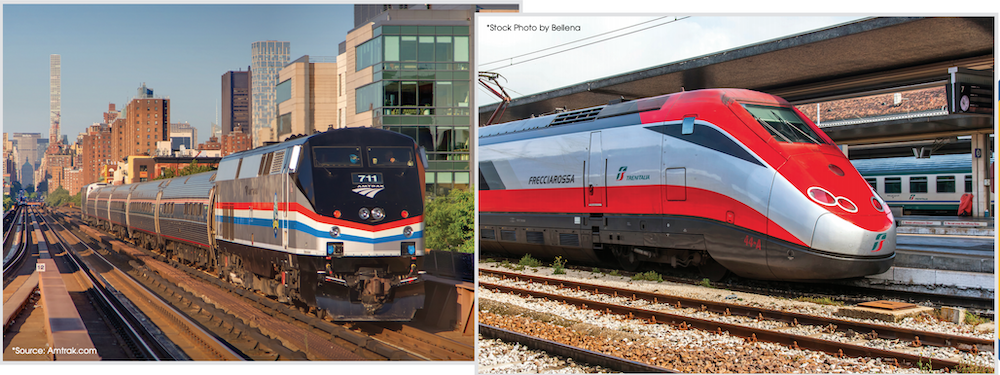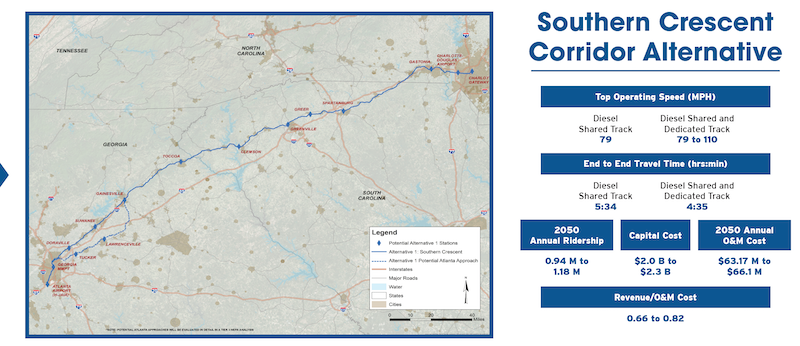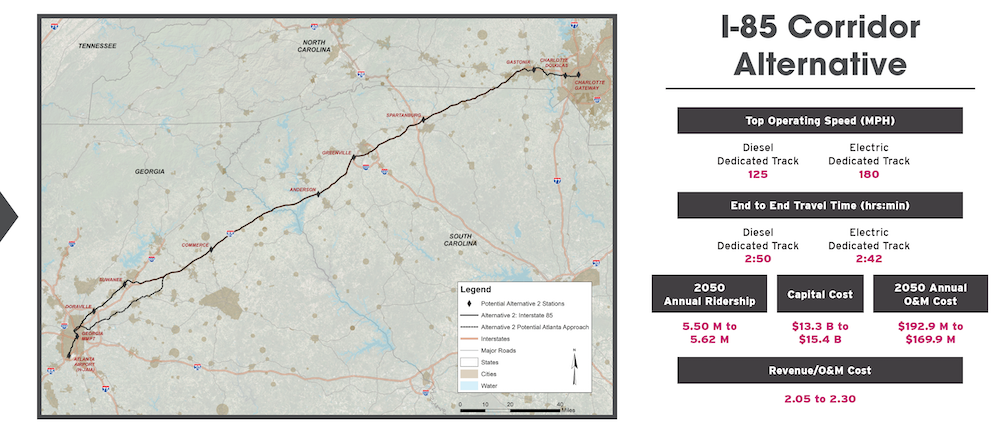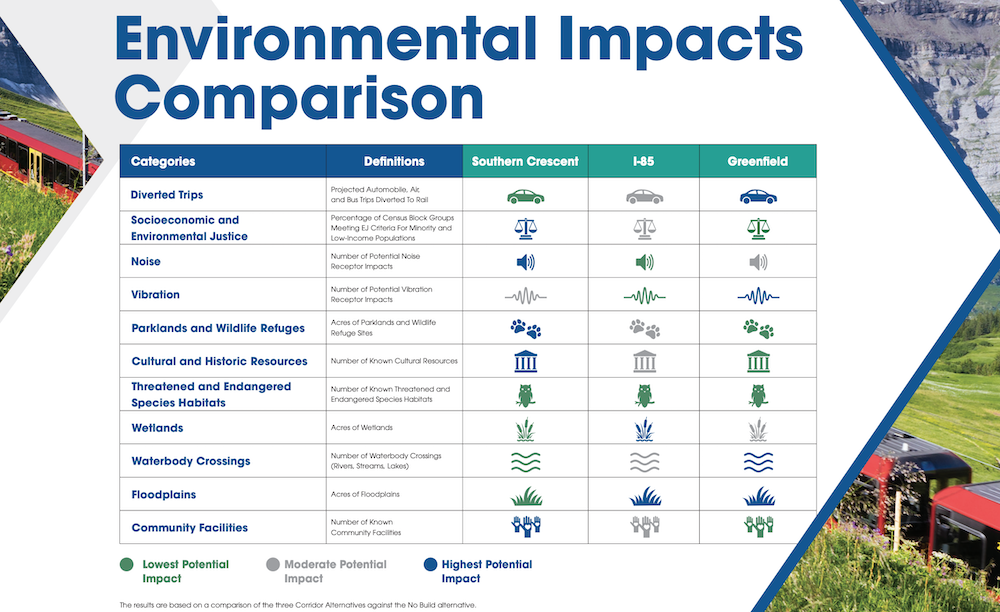High speed rail to Atlanta could become a reality
Can you imagine a trip to Atlanta in just over 2 hours? It could be a reality someday, but the Georgia DOT needs our input.

If you really want to have that 2-hour trip, please speak up and fill out the public comment online.
What you need to know:
- Georgia DOT is the lead in this first tier study.
- It encompasses approximately 280 miles of rail spanning Georgia, South Carolina, and North Carolina.
- The purpose of this study is to identify the preferred corridor and its potential environmental impacts.
This phase is so important because it determines the type of travel and how fast that travel will occur. Below is the easy guide to understanding the differences between the 3 alternative routes.
The map:

Image from Georgia Department of Transportation
The 3 routes:

Image from Georgia Department of Transportation
Southern Crescent
- Limited to diesel technology only
- Travel time between 4 ½ to 5 ½ hours (slowest of the 3 routes)
- Projected Ridership: 1 million people annually (lowest of the 3 routes)

Image from Georgia Department of Transportation
Interstate 85
- Both diesel and electric options available
- Travel Times: Diesel train 2 hours and 50 minutes; Electric train 2 hours and 42 minutes
- Projected Ridership: Over 5 million people annually
 Image from Georgia Department of Transportation
Image from Georgia Department of Transportation
Greenfield (New Right-of-Way)
- Both diesel and electric options available
- Travel Times: Diesel train 2 hours and 44 minutes; Electric train 2 hours and 6 minutes (fastest of the 3 routes)
- Projected Ridership: 5.5 to 6 million people annually (highest of the 3 routes)
The breakdown and easy feedback options:
The Southern Crescent Route is slow and only allows diesel trains. Give a “No” to this option.
Comparison between I-85 and Greenfield:

Environmental impacts:

Image from Georgia Department of Transportation
Make your voice count:
Let’s get the best high-speed rail between Charlotte and Atlanta. Click on the survey below!
Project page information: http://www.dot.ga.gov/IS/Rail/AtlantatoCharlotte/EIS
Survey Link: https://www.surveymonkey.com/r/AtlCha19
Thanks for reading!
As a nonprofit, community support is essential for us to keep doing what we do — including providing free articles like this. If you found this article helpful, please consider supporting Sustain Charlotte.
Want to stay in the loop? Subscribe to our weekly newsletter and follow us on Instagram, Facebook, and Twitter.
